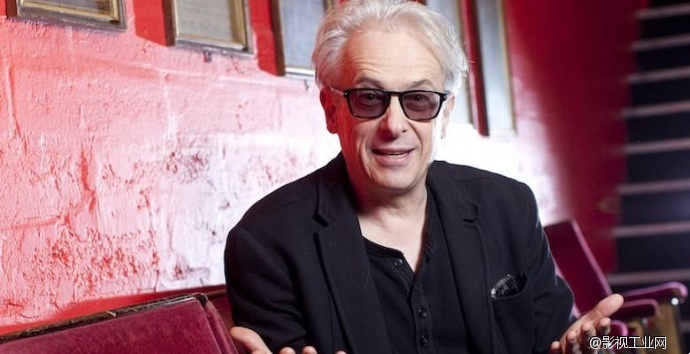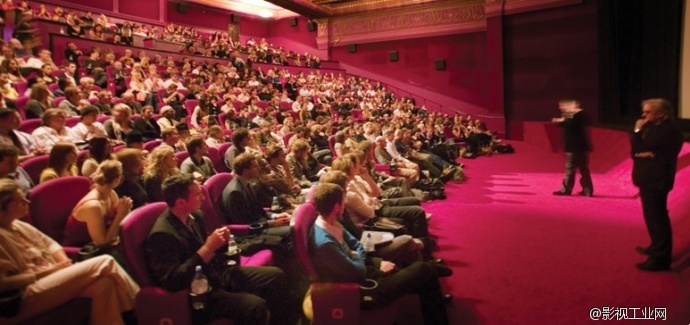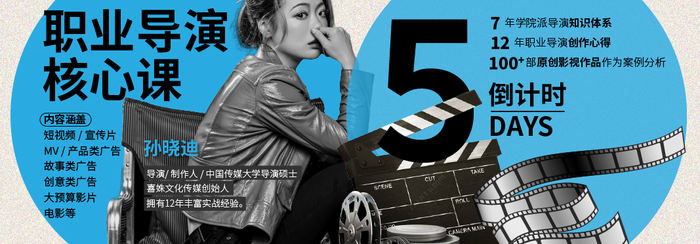Elliot Grove is the Canadian founder of Britain
Elliot Grove is the Canadian founder of Britain\'sRaindance Film Festival. He has lived in the UK since the early 1980s.Raindance Canada\'s Tiska Wiederman caughtup with Elliot shortly after his return from the Berlinale Film Festival.
Here he answers ten questions prior to his weekendmasterclass Lo To No BudgetFilmmaking in Toronto May 23/25 2015.

TW: Raindance Fim Festival isnow in it\'s 23rd year. What do you think being born and raised in Toronto gaveyou that helped you start Raindance?
EG: Being in the shadow of America all my life is certainly good trainingfor working in independent cinema under the shadow of Hollywood. As thepoliticians to the South are smug about the dominance of American clout, so tooare the Hollywood moguls on the West Coast smug about the superiority of theirmovies.
As any good Canuck knows, it doesn\'t take much tooutshine the yanks.
Also, being social secretary at Birchmount ParkCollegiate Institute in the early \'70s and helping organise and promote theweekly \'Sock Dance\' was very good training for organising a film festival!
TW: You have mentioned in the past that theBritish film organisations have shunned you. Why was that?
EG: Working outside the system has it\'s fair share of disadvantages. Onecan\'t expect to feed off the government tit if one is critical of the abuse andwaste of government money. I have been formally turned down 29 times forgovernment funding.
TW: But government funding in the UK is huge.That must have really hurt!
EG: What hurts is the lack of respect. And being Canadian means I amterminally insecure. Actually, dollar per dollar, there is a lot more filmfunding here in Ontario than in the UK.
TW: It says in your bio that you worked as ascenic artist and/or art director on 69 feature films and over 700 short filmsand advertisements. What is the one main thing you learned from this incredibleexperience?
EG: One never ever has enough money. No matter how high the budget, youare always running out of money.
The key learning would be to make a movie withwhat you have in your hands, at your control instead of waiting for what youwant to have. In fact, I write in praise oflow/no budget filmmaking.
TW: You have had some pretty amazing peopleattend Raindance - both the courses and the festival. People like Edgar Wright(your first intern) Mathew Vaughan, Christopher Nolan and Guy Ritchie. Can youmention some highlights?
EG: I\'d like to think that everyone I come in contact with has terrificpotential. Just last week during a class in London, I was dashing to the loo,bursting, when another fellow in the toilet said that he had read my books. Hethen said he had 20 years experience in the music industry and had been runningSony Music Europe. He then told me he had just formed a production company withColin Firth and asked if I knew of any projects. Wow! And all during the lengthof time I had to pee!
That was just last week - and I find a storysimilar to this just about every day in each and every city I go to. I don\'tbelieve in talent. I believe we all have talent. I do believe in hard work -something Canadians are known for.
TW: If someone in Toronto takes your classesand makes a film, does that guarantee them a screening at the Raindance FilmFestival in London? And can they make money?
EG: Everyone asks me this, and the polite answer is \'no it doesn\'t.\'
Raindance is now the largest and most importantindependent film festival in Britain, and one of the fifty top film festivalsin the world (according to Variety). Your film, when submitted to Raindance, isjudged next to the very best from Canada, Britain, Europe, and Asia. Last yearwe had submissions from 76 countries.
Don\'t make your film hoping to get into oneparticular film festival. There are thousands of film festivals around theworld and I am sure that there is one that is right for you. If your filmdoesn\'t make it into Raindance remember that there\'s lots of other really goodfilm festivals, like SWSX, Cannes, Berlin and Sundance.
As for making money - it is a business. Followbusiness principles, especially the new rules of distribution and finance andyes, money can be made.
TW: You are often quoted as being proudlyCanadian. As a filmmaker, as a champion of independent film and as the founderof Raindance, what does being Canadian mean to you, personally?
EG: I think there are several key "Canadian values" that havehelped me over the years. One is diversity. Canada is such a diverse nation -both in it\'s geography and in it\'s peoples. Diversity means one needs to beflexible and able to respond to new challenges,
I also think Canada\'s history, a relatively youngnation, and one of the world\'s most prosperous, a country created throughinnovation and industry. Those two qualities are very important to filmmakers.

OpeningNight Raindance Film festival London
TW: What do you see as the future ofindependent filmmaking in Toronto?
EG: Toronto has a terrific service industry. Your craftsmen andcraftswomen are amongst the very best in the world. But that\'s making films forother people, ususally the Americans.
For a truly exciting and grassroots film industryto flourish in Toronto, then storytellers who use visual media ie: filmmakers)must be given every encouragement and incentive to create, in the same way thatthe coffee house culture of the 1960\'s in Toronto with coffee clubs like TheRiverboat encouraged our musician colleagues like Joan Mitchell, Neil Young,Bruce Cockburn and Leon Redbone, and nightclubs like Larry Hideaway that brokejust about every rock act in North America from the Sex Pistols to Nina Hagen.
TW: What is the most important quality aCanadian filmmaker can have?
EG: It is a people industry - it\'s not what you know - it\'s who.
Our Canadian history points to the fact that in order to succeed as this(nation surely has) we had to communicate - and under some of the most adverseconditions known.
So too our new filmmakers and screenwriters mustlearn the fine art of networking, and learn to collaborate and bring bold,fresh and innovative stories to the screen - both large and small screens. Butdon\'t fall into the faux pas ofnetworking.
TW: What is your advice to Toronto\'sindependent filmmakers and screenwriters trying to make it?
EG: You have to want it. You have to have passion.And never forget:Quitters never win. Winners never quit.

本文源自瑞丹斯电影节官方网站,转载请注明出处
--------------------------------------------------------------
瑞丹斯中国北京站微博文章地址:http://weibo.com/p/1001603876850916280747
瑞丹斯中国北京站豆瓣小站文章地址:http://site.douban.com/255485/widget/notes/189934280/note/513050335/
瑞丹斯中国北京站官方网站:http://www.raindance.org/beijing/
Here he answers ten questions prior to his weekendmasterclass Lo To No BudgetFilmmaking in Toronto May 23/25 2015.

TW: Raindance Fim Festival isnow in it\'s 23rd year. What do you think being born and raised in Toronto gaveyou that helped you start Raindance?
EG: Being in the shadow of America all my life is certainly good trainingfor working in independent cinema under the shadow of Hollywood. As thepoliticians to the South are smug about the dominance of American clout, so tooare the Hollywood moguls on the West Coast smug about the superiority of theirmovies.
As any good Canuck knows, it doesn\'t take much tooutshine the yanks.
Also, being social secretary at Birchmount ParkCollegiate Institute in the early \'70s and helping organise and promote theweekly \'Sock Dance\' was very good training for organising a film festival!
TW: You have mentioned in the past that theBritish film organisations have shunned you. Why was that?
EG: Working outside the system has it\'s fair share of disadvantages. Onecan\'t expect to feed off the government tit if one is critical of the abuse andwaste of government money. I have been formally turned down 29 times forgovernment funding.
TW: But government funding in the UK is huge.That must have really hurt!
EG: What hurts is the lack of respect. And being Canadian means I amterminally insecure. Actually, dollar per dollar, there is a lot more filmfunding here in Ontario than in the UK.
TW: It says in your bio that you worked as ascenic artist and/or art director on 69 feature films and over 700 short filmsand advertisements. What is the one main thing you learned from this incredibleexperience?
EG: One never ever has enough money. No matter how high the budget, youare always running out of money.
The key learning would be to make a movie withwhat you have in your hands, at your control instead of waiting for what youwant to have. In fact, I write in praise oflow/no budget filmmaking.
TW: You have had some pretty amazing peopleattend Raindance - both the courses and the festival. People like Edgar Wright(your first intern) Mathew Vaughan, Christopher Nolan and Guy Ritchie. Can youmention some highlights?
EG: I\'d like to think that everyone I come in contact with has terrificpotential. Just last week during a class in London, I was dashing to the loo,bursting, when another fellow in the toilet said that he had read my books. Hethen said he had 20 years experience in the music industry and had been runningSony Music Europe. He then told me he had just formed a production company withColin Firth and asked if I knew of any projects. Wow! And all during the lengthof time I had to pee!
That was just last week - and I find a storysimilar to this just about every day in each and every city I go to. I don\'tbelieve in talent. I believe we all have talent. I do believe in hard work -something Canadians are known for.
TW: If someone in Toronto takes your classesand makes a film, does that guarantee them a screening at the Raindance FilmFestival in London? And can they make money?
EG: Everyone asks me this, and the polite answer is \'no it doesn\'t.\'
Raindance is now the largest and most importantindependent film festival in Britain, and one of the fifty top film festivalsin the world (according to Variety). Your film, when submitted to Raindance, isjudged next to the very best from Canada, Britain, Europe, and Asia. Last yearwe had submissions from 76 countries.
Don\'t make your film hoping to get into oneparticular film festival. There are thousands of film festivals around theworld and I am sure that there is one that is right for you. If your filmdoesn\'t make it into Raindance remember that there\'s lots of other really goodfilm festivals, like SWSX, Cannes, Berlin and Sundance.
As for making money - it is a business. Followbusiness principles, especially the new rules of distribution and finance andyes, money can be made.
TW: You are often quoted as being proudlyCanadian. As a filmmaker, as a champion of independent film and as the founderof Raindance, what does being Canadian mean to you, personally?
EG: I think there are several key "Canadian values" that havehelped me over the years. One is diversity. Canada is such a diverse nation -both in it\'s geography and in it\'s peoples. Diversity means one needs to beflexible and able to respond to new challenges,
I also think Canada\'s history, a relatively youngnation, and one of the world\'s most prosperous, a country created throughinnovation and industry. Those two qualities are very important to filmmakers.

OpeningNight Raindance Film festival London
TW: What do you see as the future ofindependent filmmaking in Toronto?
EG: Toronto has a terrific service industry. Your craftsmen andcraftswomen are amongst the very best in the world. But that\'s making films forother people, ususally the Americans.
For a truly exciting and grassroots film industryto flourish in Toronto, then storytellers who use visual media ie: filmmakers)must be given every encouragement and incentive to create, in the same way thatthe coffee house culture of the 1960\'s in Toronto with coffee clubs like TheRiverboat encouraged our musician colleagues like Joan Mitchell, Neil Young,Bruce Cockburn and Leon Redbone, and nightclubs like Larry Hideaway that brokejust about every rock act in North America from the Sex Pistols to Nina Hagen.
TW: What is the most important quality aCanadian filmmaker can have?
EG: It is a people industry - it\'s not what you know - it\'s who.
Our Canadian history points to the fact that in order to succeed as this(nation surely has) we had to communicate - and under some of the most adverseconditions known.
So too our new filmmakers and screenwriters mustlearn the fine art of networking, and learn to collaborate and bring bold,fresh and innovative stories to the screen - both large and small screens. Butdon\'t fall into the faux pas ofnetworking.
TW: What is your advice to Toronto\'sindependent filmmakers and screenwriters trying to make it?
EG: You have to want it. You have to have passion.And never forget:Quitters never win. Winners never quit.

本文源自瑞丹斯电影节官方网站,转载请注明出处
--------------------------------------------------------------
瑞丹斯中国北京站微博文章地址:http://weibo.com/p/1001603876850916280747
瑞丹斯中国北京站豆瓣小站文章地址:http://site.douban.com/255485/widget/notes/189934280/note/513050335/
瑞丹斯中国北京站官方网站:http://www.raindance.org/beijing/
本文为作者 英国瑞丹斯电影节北京站 分享,影视工业网鼓励从业者分享原创内容,影视工业网不会对原创文章作任何编辑!如作者有特别标注,请按作者说明转载,如无说明,则转载此文章须经得作者同意,并请附上出处(影视工业网)及本页链接。原文链接 https://cinehello.com/stream/68686
英国瑞丹斯电影节北京站
点击了解更多
英国瑞丹斯电影节(Raindance Film Festival)于1992年正式成立,总部坐落于英国伦敦,是一个拥有20多年历史的老牌欧洲电影节,被列为世界顶级50个不可错过的电影节之一。分站遍布欧美各国,在伦敦、洛杉矶、纽约、多伦多、巴黎、布鲁塞尔、布达佩斯、蒙特利尔以及温莎底特律都设有分站,为大众呈现来自世界各地的优秀影片。2012年,瑞丹斯电影节成为英国第二个具备向奥斯卡提名资格的电影节。
扫码关注
英国瑞丹斯电影节北京站
英国瑞丹斯电影节北京站
